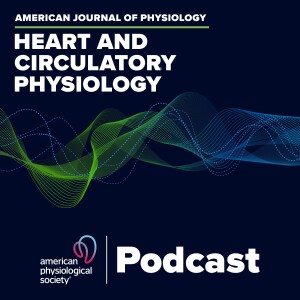
What is the relationship between cardiovascular developmental programming and the risk of stroke later in life? Listen as Guest Editor Dr. Helen E. Collins (University of Louisville) interviews author Dr. Nafisa Jadavji (Midwestern University) and expert Dr. Deanne Hryciw (Griffith University) about the latest research by Pull et al. looking at underlying mechanisms associated with a poor-quality diet during pregnancy. One-carbon metabolism is essential for biosynthesis of DNA and proteins, as well as methylation. Jadavji and co-authors demonstrated that maternal dietary deficiency in one-carbon (1C) metabolism, either in folic acid or choline, resulted in reduced cerebral blood flow in adult offspring after an ischemic stroke. Pull et al. focused their investigation on female offspring and identified this effect in 3-month-old offspring but not 11-month-old offspring. The results point to the key role that maternal diet has in early life programming, fetal development, and long-term cerebrovascular health. Are there many downstream pathways that are altered by one-carbon metabolism deficiencies? Is there a negative impact of folic acid over-supplementation? Listen now to find out.
Kasey Pull, Robert Folk, Jeemin Kang, Shaley Jackson, Brikena Gusek, Mitra Esfandiarei, and Nafisa M. Jadavji Impact of maternal dietary folic acid or choline dietary deficiencies on vascular function in young and middle-aged female mouse offspring after ischemic stroke Am J Physiol Heart Circ Physiol, published October 30, 2023. DOI: 10.1152/ajpheart.00502.2023
More Episodes
 2019-12-10
2019-12-10
 287
287
 2019-11-19
2019-11-19
 433
433
 2019-11-07
2019-11-07
 366
366
 2019-09-05
2019-09-05
 378
378
 2019-08-21
2019-08-21
 345
345
 2019-08-14
2019-08-14
 297
297
 2019-08-07
2019-08-07
 334
334
 2019-07-08
2019-07-08
 457
457
 2019-06-27
2019-06-27
 354
354
 2019-06-18
2019-06-18
 300
300
 2019-06-06
2019-06-06
 369
369
 2019-04-29
2019-04-29
 337
337
 2019-04-26
2019-04-26
 270
270
 2019-03-26
2019-03-26
 365
365
 2019-03-22
2019-03-22
 337
337
 2019-03-06
2019-03-06
 375
375
 2019-03-05
2019-03-05
 275
275
 2019-01-23
2019-01-23
 347
347
Create your
podcast in
minutes
- Full-featured podcast site
- Unlimited storage and bandwidth
- Comprehensive podcast stats
- Distribute to Apple Podcasts, Spotify, and more
- Make money with your podcast
It is Free
- Privacy Policy
- Cookie Policy
- Terms of Use
- Consent Preferences
- Copyright © 2015-2024 Podbean.com





